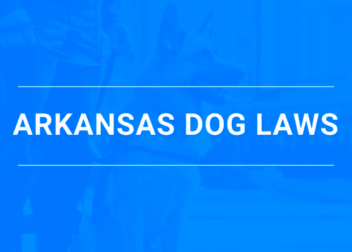Dog Barking Laws in Washington State and Noise Ordinances
Dog barking can be a significant issue in communities, leading to disputes between neighbors. In Washington State, specific laws address this concern. These laws aim to balance the rights of dog owners with the peace and comfort of the community. Understanding these laws is crucial for pet owners and residents alike. By knowing the regulations, you can help maintain harmony in your neighborhood while ensuring your pet’s well-being.
Overview of Washington State Noise Ordinances

Washington State has established noise ordinances to regulate excessive noise, including dog barking. Here’s a brief overview of these ordinances:
- General Noise Restrictions: Most cities have specific times when noise levels must be reduced, often between 10 PM and 7 AM.
- Decibel Limits: Some areas may impose decibel limits, usually around 50-70 dB, depending on the zone (residential, commercial, etc.).
- Enforcement: Local law enforcement or animal control typically handles noise complaints, so it’s essential to report issues to the correct authorities.
It’s important to check local ordinances, as regulations can vary between cities and counties. For instance, Seattle and Spokane may have different rules regarding noise levels and times.
When Does Dog Barking Become a Violation
Dog barking becomes a violation when it disrupts the peace of the neighborhood. Here are some key factors to consider:
- Frequency: Continuous barking or barking that happens multiple times throughout the day can be seen as a disturbance.
- Duration: If a dog barks for an extended period, especially during quiet hours, it may lead to complaints.
- Time of Day: Barking late at night or early in the morning is often more likely to be reported.
Each case is evaluated individually, taking into account the specific circumstances. If barking is a common issue in a neighborhood, it may be classified as a public nuisance, leading to potential legal action.
Responsibilities of Dog Owners
As a dog owner, you have a responsibility to ensure your pet behaves in a way that doesn’t disturb your neighbors. This includes managing barking habits, which can be a significant concern in residential areas. Understanding your responsibilities can help you maintain a peaceful environment while ensuring your dog is happy and healthy.
Here are some key responsibilities of dog owners:
- Training: Invest time in training your dog to reduce unnecessary barking. Basic commands and positive reinforcement can make a big difference.
- Socialization: Regularly socialize your dog with other pets and people. This can help reduce anxiety and minimize barking due to fear or excitement.
- Exercise: Ensure your dog gets enough physical activity. A tired dog is less likely to bark excessively out of boredom.
- Monitoring Behavior: Keep an eye on your dog’s barking habits. If your dog tends to bark frequently, identify the triggers and work on addressing them.
- Communication: Maintain open communication with your neighbors. If they express concerns about your dog’s barking, take it seriously and work to find a solution.
By taking these responsibilities seriously, you can help foster a more peaceful neighborhood and strengthen your relationship with your pet.
Reporting Dog Barking Complaints
If you find yourself dealing with persistent barking from a neighbor’s dog, it’s important to address the situation properly. Reporting a dog barking complaint can feel daunting, but knowing the steps to take can make the process smoother. Here’s how to handle it:
- Document the Behavior: Keep a log of when the barking occurs, including dates, times, and duration. This evidence will be useful when making a complaint.
- Talk to the Owner: If you feel comfortable, try discussing the issue with the dog’s owner. They may not be aware of the problem and might appreciate the feedback.
- Contact Local Authorities: If the barking continues, contact your local animal control or law enforcement. Provide them with your documentation.
- Follow Up: After reporting, follow up with the authorities to ensure they’re taking appropriate action.
Remember, it’s important to handle the situation respectfully. Many dog owners may not realize their pet is causing a disturbance, and a calm approach can often lead to a better outcome.
Penalties for Violating Noise Ordinances
Violating noise ordinances, especially those related to dog barking, can result in penalties that vary by location. It’s essential to understand these consequences as they can impact your rights as a pet owner and your relationship with neighbors.
Here’s a breakdown of potential penalties:
- Warnings: Most jurisdictions will first issue a warning to the dog owner, notifying them of the violation.
- Fines: Continued violations may lead to fines. These can range from $50 to several hundred dollars, depending on local laws.
- Additional Fees: In some cases, there may be additional fees for repeated offenses, escalating the financial impact on the owner.
- Citations: Persistent issues can result in formal citations, which may require a court appearance.
- Legal Action: In extreme cases, ongoing noise disturbances could lead to civil actions, where neighbors may seek legal remedies.
To avoid these penalties, it’s best to proactively manage your dog’s barking habits and engage with neighbors to address any concerns. By taking these steps, you can help create a harmonious living environment for everyone.
Defenses Against Barking Violations
If you find yourself facing a barking violation, it’s important to know that there are potential defenses you can use. Understanding these defenses can help you protect your rights and respond effectively to complaints. Here are some common defenses against barking violations:
- Reasonable Control: If you can demonstrate that you were taking reasonable steps to control your dog’s barking, this can work in your favor. For instance, showing evidence of training or exercise routines can support your case.
- Temporary Situations: If the barking was due to a temporary situation, such as a loud noise from construction or a new neighbor moving in, this can be a valid defense. Documenting these situations can help clarify that the barking was not a regular occurrence.
- Misinterpretation: Sometimes, neighbors may misinterpret normal dog behavior as excessive barking. If your dog only barks occasionally and not in a disruptive manner, you can argue that it does not violate noise ordinances.
- Unfounded Complaints: If the complaints against your dog are not substantiated, you can present evidence to dispute them. This could include witness statements from other neighbors who have not experienced issues with your dog’s barking.
It’s crucial to gather evidence and possibly seek legal advice if you face serious consequences. Understanding your rights and having a clear plan can help you navigate these situations more effectively.
FAQ About Dog Barking Laws in Washington State
Many people have questions about dog barking laws in Washington State. Understanding these laws can clarify your rights and responsibilities as a dog owner. Here are some frequently asked questions:
- What constitutes excessive barking? Excessive barking is typically defined as barking that lasts for extended periods, especially during quiet hours, or barking that occurs frequently throughout the day.
- Can I be fined for my dog’s barking? Yes, if your dog’s barking violates local noise ordinances, you could face fines and other penalties.
- How can I report a barking complaint? You can report a barking complaint to your local animal control or law enforcement by providing details about the behavior and any evidence you’ve gathered.
- Are there defenses against barking complaints? Yes, there are several defenses, such as showing that you were taking reasonable steps to control the barking or that the barking was a temporary issue.
- What should I do if my neighbor complains? If a neighbor complains, it’s best to communicate openly and work together to find a solution. Training and managing your dog’s behavior can often help resolve the issue.
These FAQs highlight the importance of being informed about local laws and proactive in managing your dog’s barking habits.
Conclusion on Dog Barking Regulations
Understanding dog barking laws and noise ordinances in Washington State is essential for pet owners and residents. These regulations aim to balance the rights of dog owners with the need for a peaceful living environment for everyone. By being aware of your responsibilities as a dog owner, you can help prevent barking issues from escalating into conflicts with neighbors.
Addressing barking complaints effectively and knowing your defenses can also protect you from potential penalties. Open communication with your neighbors and proactive management of your dog’s behavior can go a long way in maintaining harmony in your community.
In summary, staying informed and engaged will help ensure a peaceful coexistence with your furry friends and your neighbors, making your community a better place for everyone.


